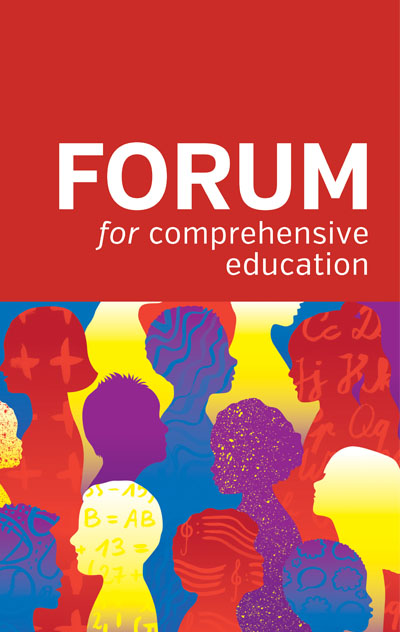
Reconceptualising Child-Centred Education: contemporary directions in policy, theory and practice in early childhood
FORUM - Print ISSN 1474-7685 - Online ISSN 2047-7171
Volume 49 Number 1 & 2 (2007)
Reconceptualising Child-Centred Education: contemporary directions in policy, theory and practice in early childhood
ELIZABETH WOOD pages 119‑134
DOI: 10.2304/forum.2007.49.1.119
Abstract
The purpose of this article is to examine contemporary transformations in early childhood education, in light of developments in policy, theory and practice, and to chart significant changes and continuities over the last 40 years. The Plowden Report had a significant impact on early childhood education, because it reified developmental theories, and child-centred approaches to learning through discovery, exploration and play, and to planning the curriculum around children's needs and interests. However, these constructs proved to be problematic in theory and in practice, and provoked unprecedented policy interventions in curriculum and pedagogy. It is argued here that the concept of child-centred education has re-emerged within contemporary social policy initiatives that focus provision and multi-professional services on children and their families. Furthermore, theoretical advances have challenged the dominance of developmental theories, and integrate social, cultural and individual perspectives. Children are seen as competent social actors within a complex network of social and cultural influences. This places children and significant adults at the heart of contemporary educational processes.
To cite this article
ELIZABETH WOOD (2007) Reconceptualising Child-Centred Education: contemporary directions in policy, theory and practice in early childhood, FORUM, 49(1 & 2 ), 119-134 . https://doi.org/10.2304/forum.2007.49.1.119
